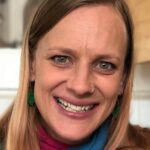Annelies Judson speaks with Elena de Roo about children’s poetry, getting published and the camaraderie of the children’s literature community
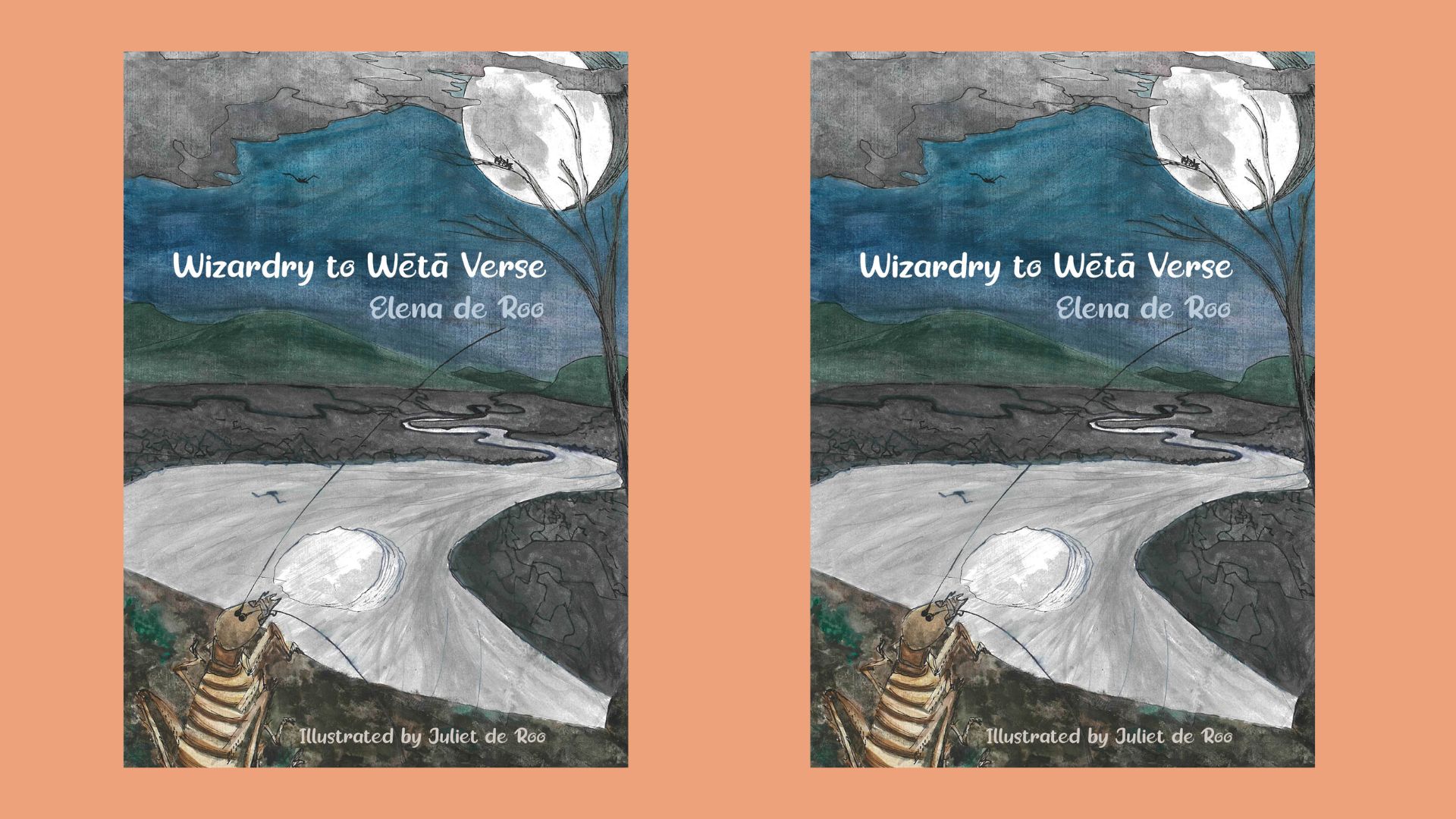
In my mind, Elena de Roo is almost a mythical mother figure, with her gentle voice and generous nature. Her jobs and education cover all of the professions that you might expect of such a person: librarian, teacher, midwife, children’s writer. But it is that last one—as a writer and poet for children—where Elena has found her true calling. Given her love of writing for children, it should not be a surprise to me that, rather than a mother figure, de Roo describes herself as ‘a bit of a Peter Pan inside.’
Her newest book is a collection of poems for children: Wizardry to Wētā Verse. It has been quite a journey for de Roo, taking more than a decade to complete. It’s probably for the best that she feels a bit like Peter Pan. A more grown up grown-up might have given up by this point. Her enduring belief in this collection feels a little like ‘clap if you believe in fairies’. She has spent twelve years clapping and believing—but here, finally, is the magic.
The actual story starts in 2005, when de Roo attended a writer’s course. ‘I had this revelation,’ she says, ‘that I could write for children. Suddenly it all fell into place, because I had my own kids, and I realised that I didn’t have any grown up ideas I wanted to write about, I just wanted to do kids stuff.’ Her first poem for children, written in 2007, was accepted for publication by Australia’s The School Magazine, which she describes as ‘a real boost’.
In 2010 came her rhyming book The Rain Train. After it was published, the then-publisher at Walker Books Australia suggested that she write a book of poetry. So she applied for, and received, the (now disestablished) Todd New Writers Bursary through Creative New Zealand, and spent ‘a lovely year just writing poems’.
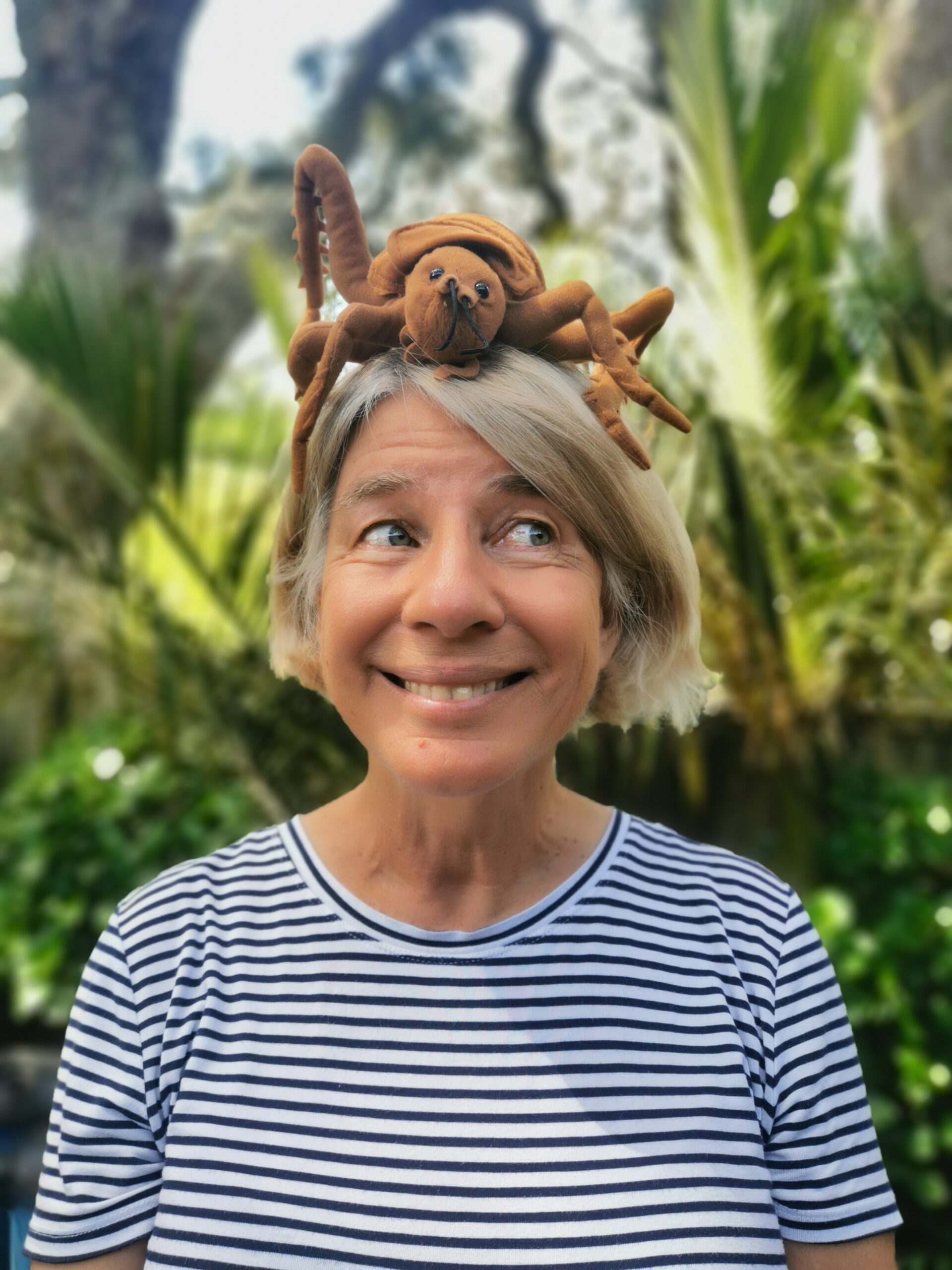
When Walker eventually decided not to go ahead with publication, de Roo shelved the project ‘dejectedly’. But she continued writing poems for The School Magazine, and had poems published in Paula Green’s poetry anthologies. ‘And every year or so, I’d try my luck with publishers I had a relationship with and ask, “Now what about a collection of poems?”’ As she says this, de Roo laughs wryly. No publishers took her up on the offer. Poetry collections simply do not sell in Aotearoa, and children’s poetry collections are no exception.
However, the project was, as de Roo says, ‘her core’. In 2022, the opportunity arose to pitch to The Cuba Press. They gave de Roo the offer of a hybrid publication, where the publisher and author share the cost of publishing a book. Finally, 12 years after its inception, the poetry collection had a home. The Cuba Press, in particular her editor Mary, is described by de Roo as ‘a perfect fit’. She needed, she says, someone with experience of editing poetry, who could help her pull together the varied range of poems that she had written.
Although Wizardry to Wētā Verse has taken quite some time, de Roo has not spent that time idle. She published a Middle Grade book, The Name At The End of the Ladder, two Middle Grade story collections told in rhyming couplets (The Ophelia Wild series), and picture books To Catch A Cloud, Ring Ting Tūī! and Rush! Rush! as well as a lot of material for the educational market.
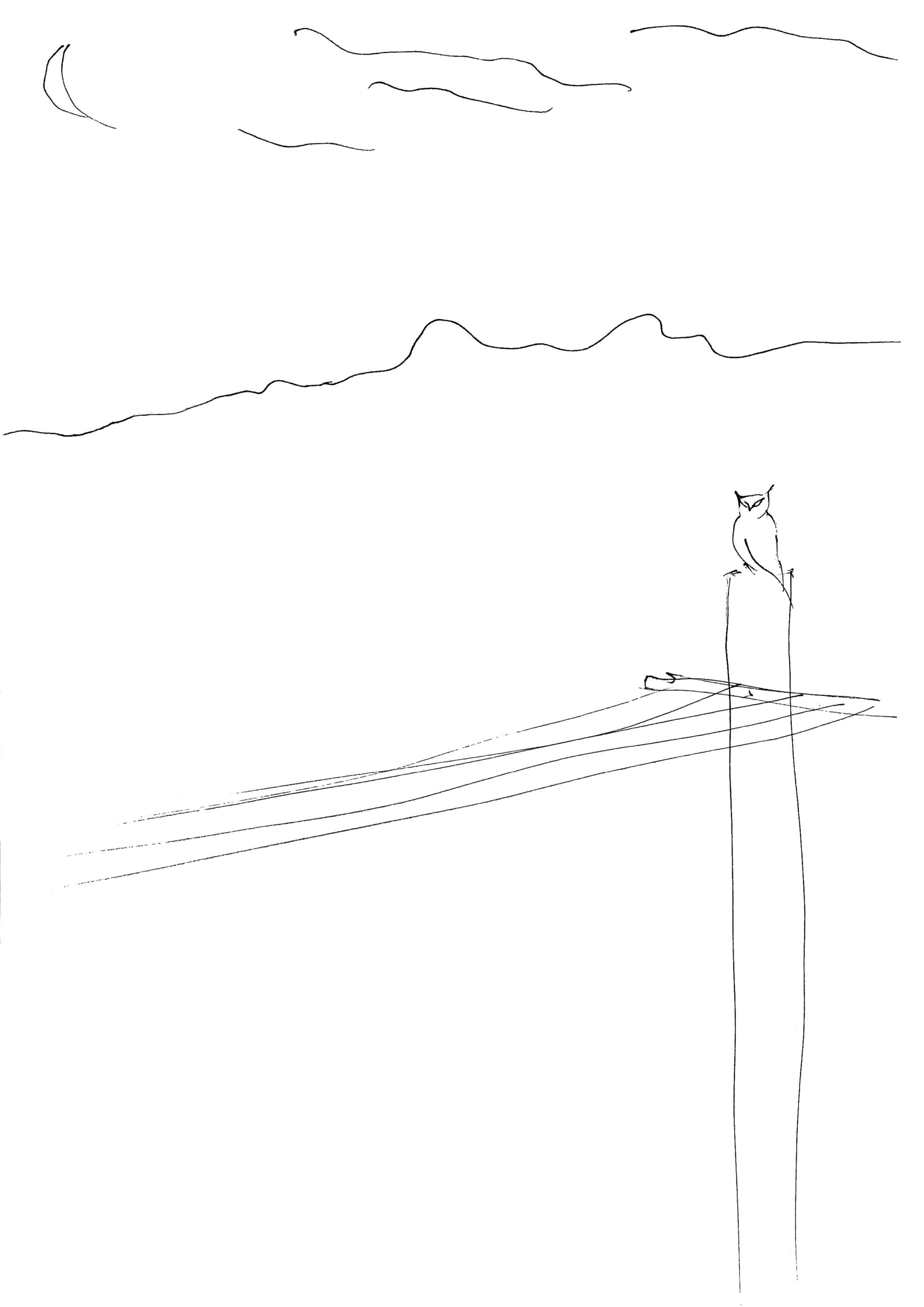
She also spent a year studying midwifery, after a period in which she hadn’t had anything accepted for publication. Towards the end of her course, Barbara Murison, who had previously been her NZSA writing mentor, offered her tickets to the International Board on Books for Young People (IBBY) Conference in Auckland. But de Roo said she couldn’t make it due to her midwifery exam. When Murison replied, ‘All the best with your new career!’ de Roo realised she didn’t really want to give up on writing, and that a being a midwife would be all-consuming (‘the responsibility too great!’), so she wouldn’t be able to fit in both. Instead, she went on to do the Master of Creative Writing at AUT. It was here she began a new Middle Grade novel, Cam and the Bird-people.
In 2020, Auckland-based de Roo was offered the position of University of Otago Children’s Writer in Residence to continue with the novel. She moved into the Robert Lord Cottage in February, and began a regular schedule of going each day to the Faculty of Education to write. Then came the lockdown. She and her husband made the decision to stay in Dunedin, but she ‘was too anxious about what we were all facing’ and struggled to write. ‘To me, it seemed like everyone else was being really productive, and all I could do was write poems. It was my solace, my happy place.’
This is not a surprise. There is a joy in the way de Roo approaches poetry that goes beyond the subject matter, or the language, or the audience. When she performs her poems, there is a sense that she enjoys the feel of language, the sounds and rhythms and tones that make up the more subtle aspects of the poetic form. Even the sections in Wizardry are a set of rhyming couplets: from the first two sections (‘Keeping you awake poems’ and ‘Do not sniff this cake poems’) to ‘Lonely and alone poems’ and ‘Poems about poems poems’. And if you needed any further evidence of joy, you should read the poems that bookend the book: ‘Awake and first out of the alphabed’ and ‘Asleep at the end of the alphabed’, both of which perfectly encapsulate her love of wordplay, sound and playing with form.
Poetry is not just de Roo’s happy place, but also her community. Over the years she has made connections and friendships with many other writers, many of whom have been influential in the decisions she has made about her career. A photo from the Wizardry to Wētā Verse book launch includes Vasanti Unka, Sally Sutton and Melinda Szymanik, among others. ‘The children’s writers’ community is such a lovely community,’ de Roo says, ‘and they do go out of their way to help other writers.’
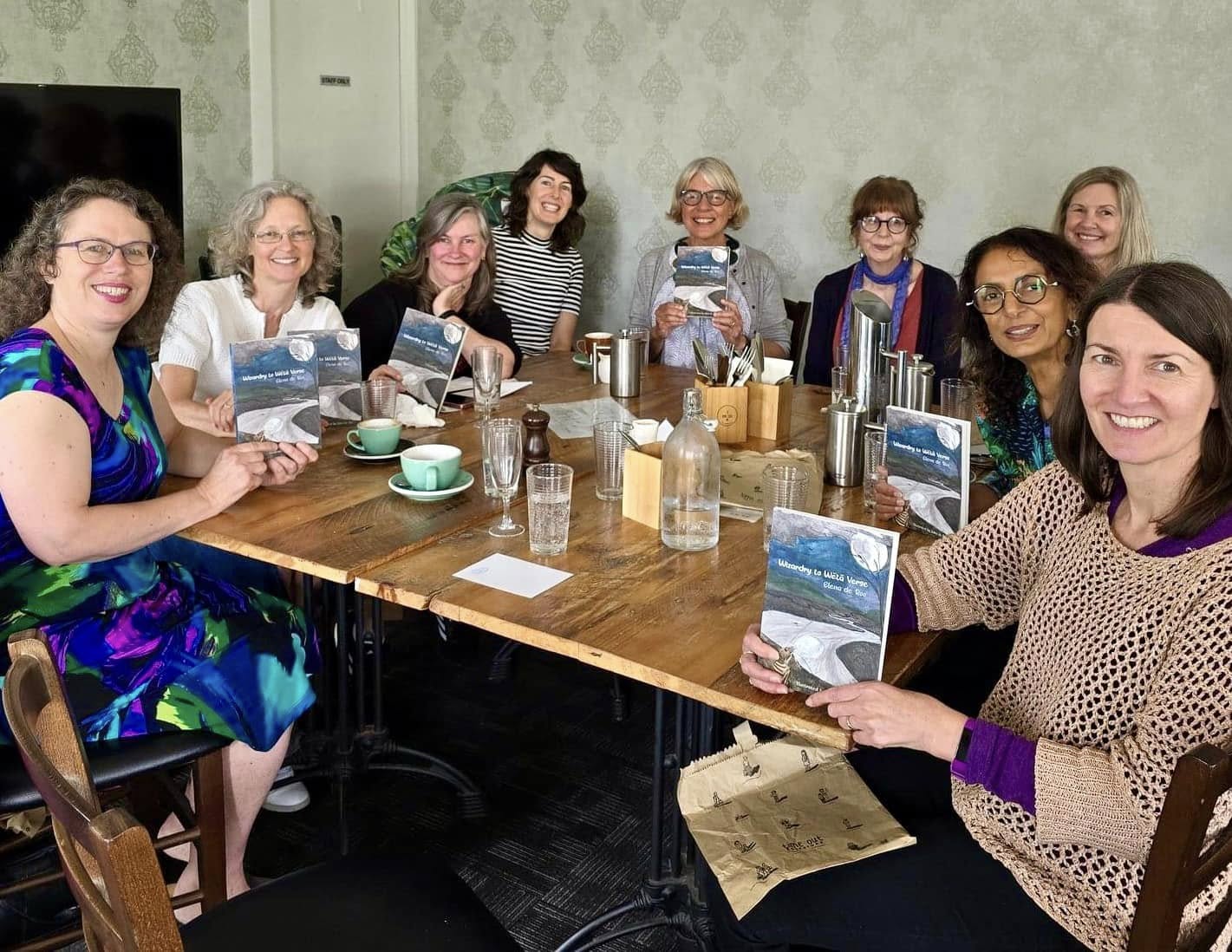
It is not just the writing community helping de Roo, but also her helping the community. A few years ago, Szymanik and de Roo, alongside poet Kathryn Dove, started The Poets XYZ. Initially just a coffee group for the three poets to talk shop, it became a vehicle for promoting children’s poetry. There are very few opportunities for children’s poetry and poets in Aotearoa, and so in 2023 The Poets XYZ ran a poetry competition for National Poetry Day, specifically for adult writers of children’s poetry. The idea was not only to provide an opportunity for children’s poets, but also to grow the community. The competition received over 70 entries, from established writers such as Samantha Montgomerie, who is well known in educational publishing, to those who had never before written a poem for children. The success of the competition meant that it returned in 2024, and seems likely to become a fixture of National Poetry Day.
When I ask de Roo what she would do with unlimited time and money to grow the profile of children’s poetry in New Zealand, she doesn’t have an immediate answer. ‘A residence would be wonderful,’ she says, ‘but often that counts out those with family commitments. I did think, if I won Lotto, I’d love to set up some kind of prize or fund that included a publishing deal … but really the whole reason that so little children’s poetry from Aotearoa gets published, especially single author collections, is because people aren’t buying it.’
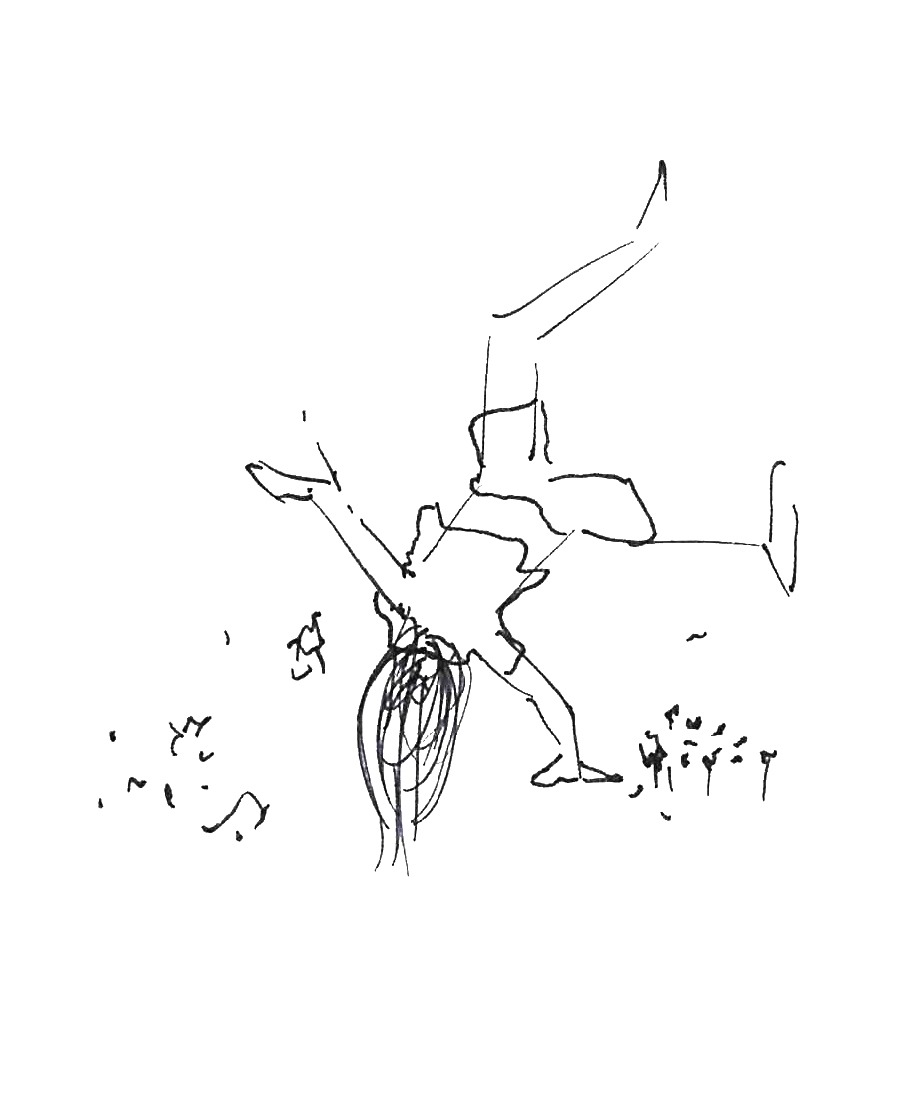
This is the crux of the challenge that has beset her over the 14 years since Walker Books suggested a poetry collection. Aotearoa is a small market, and children’s poetry is a tiny slice of that small market. Publishers—no matter how noble their intentions, how much they believe that there should be a poetry collection out there—simply cannot afford to publish books that don’t sell. And if they don’t sell, then the intended audience, the children, do not have access to it.
She and I have a long conversation about how to improve this state of affairs, the conclusion of which is that neither of us really have the answers. But de Roo is good at playing the long game. If she can wait 14 years to have a poetry collection published, then perhaps we just need to give her a decade or so (and maybe a Lotto win) and she might be able to conjure up some magic. Clapping and believing probably wouldn’t hurt either.
Annelies Judson
Annelies Judson writes book reviews and poetry for children, among other things. Her many loves include cooking, cricket, science and the em-dash. She can be found on Twitter/X and BlueSky @babybookdel and on Instagram @annelies_judson_writer. She also has a Substack newsletter starting February 2025, @anneliesjudsonwriter.




